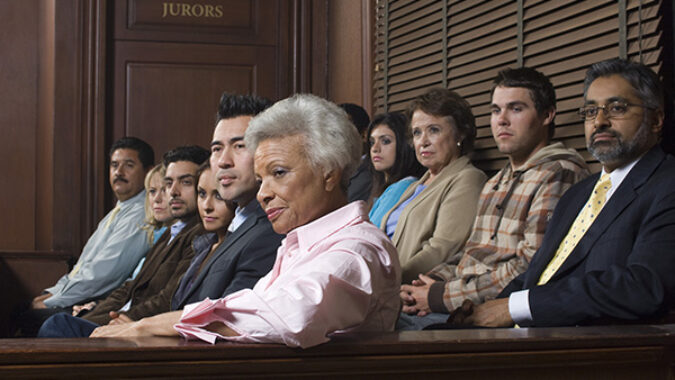NJBIA President & CEO Michele Siekerka testified at the New Jersey Supreme Court’s Judicial Conference on Jury Selection on Friday, representing New Jersey employers, to address changes needed to improve the system for choosing jurors.
The online Guide to the New Jersey Judicial Conference on Jury Selection notes that the current system requires substantially more potential jurors to report for jury selection because of the need to have a large enough pool in case all peremptory challenges are exercised.
This results in more employees being called away from work to meet their jury duty obligations than is necessary. The Court is looking to better understand the impact this has on employers and the work environment.
Siekerka, who is also an attorney, told Chief Justice Stuart Rabner that the concept of “over-summoning” has not been voiced as an overarching concern among employers.
However, she said, “any impact falls disproportionately on small businesses where the absence from work for even just one, or several days or more, could disrupt the workflow, delay projects and affect customer service.”
“In some cases, for a small business owner called it to serve, it could mean having to shut down completely while the process plays out,” Siekerka said.
Siekerka recommended the state consider a juror utilization survey, as California had one in 2011, to reduce the number of unused jurors and increase judicial confidence in their ability to impanel juries from smaller panels.
“As a result of their work, the percentage of unused jurors declined by 10 percentage points on average and could collectively reduce the number of jurors sent to courtrooms by 79,450 jurors per year, potentially saving the courts nearly $2 million, and jurors and their employers an estimated $57 million, annually,” Siekerka said.
The two-day conference was geared toward finding jurors for criminal trials. Siekerka added that peremptory challenges could bleed into civil trials.
“In this regard and on behalf of the business community, we must be assured that a business or employer sitting at the defense table of a civil trial has the same right to have a jury that is free from prejudices,” she said.
“While those prejudices can take on many different forms, the concept is still the same. Those defendants need to be assured of a fair and impartial jury, not one that may have actual or implicit negative feelings toward the business for any myriad of reasons.”

